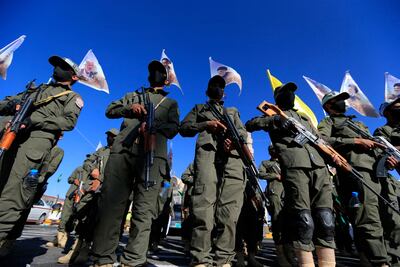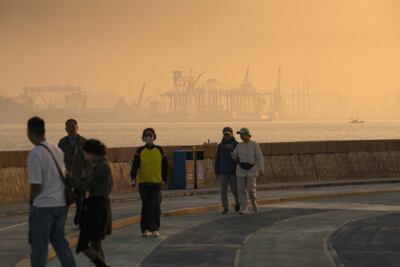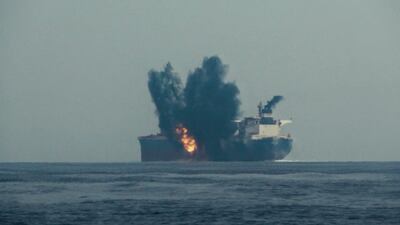Live updates: Follow the latest on Israel-Gaza
The widening Middle East conflict and attacks on Red Sea shipping pose a “significant risk” to the prospects of an economic pick-up in the region, UN trade officials warned on Tuesday.
Forecasts by the UN's trade and development agency show the Western Asia region including the Middle East and Turkey on course for 2.4 per cent growth this year, up from 2.0 per cent last year. It said growth could accelerate to 3.9 per cent next year but only “in the absence of a further escalation of tensions”.
The agency said “significant risks remain as widening conflicts spur tensions throughout the region, with ripple effects for international shipping in the Red Sea”. The risks are particularly concentrated in Israel, Lebanon, Yemen and the Palestinian territories, says an annual trade and development report.
Yemen's Iran-backed Houthi rebels have been attacking Red Sea shipping in a show of solidarity with Hamas in Gaza, forcing mariners to take long-haul alternative routes. The rebels have claimed responsibility for three fresh strikes in recent days, although the pace of attacks appears to have slowed.
Longer sea voyages boosted revenue in the maritime transport industry but came with a “darker side” due to the higher environmental footprint, according to the UN agency, known as Unctad. It said the Red Sea security threats led to increases in both shipping costs and carbon dioxide emissions.

Israel, the US and Britain have launched strikes at Houthi targets in Yemen in an attempt to stop the blockade. Israel's military operations have widened in recent weeks to include a ground campaign in Lebanon and retaliatory strikes against Iran.
The 2024 and 2025 forecasts also consider the possibility of the Middle East conflict and Red Sea disruption leading to volatile commodity prices. The projected growth in Western Asia is based on the stabilisation of oil prices and a rebound in major oil-exporting economies.
Global risks
Geopolitical tensions and uncertainty over how governments will behave are “likely to limit the rebound” globally, the UN officials warn. The agency's secretary general, Rebeca Grynspan, said the sluggish “new normal” growth experienced since 2008 was showing signs of deteriorating further.
“Important shifts in geopolitics and economic thinking – including the return of industrial policy, multipolar trade patterns and new technological innovations – signal that globalisation itself is at an inflection point,” she said.
The report forecasts global GDP growth of 2.7 per cent for both 2024 and 2025, marking three consecutive years below the three per cent pre-pandemic growth trend. The US, China and the EU are all on “decelerating or weakened growth trajectories”, officials believe.

Meanwhile, liberal trade policies brought in since the 1990s are “shifting towards more fundamentally protectionist and interventionist policies” while immigration and labour market rules are also “becoming even more restrictive”, they warn.
They say the world's recovery from Covid-19 has been “marred by widespread discontent” amid high prices and fears of job losses, which “feeds fragility internally and contributes to risks of fragmentation internationally”.
These shifts could “limit possibilities to pursue export-led growth and development strategies … this poses a major challenge for developing countries, where development plans almost always involve export-led growth”, it is feared.


